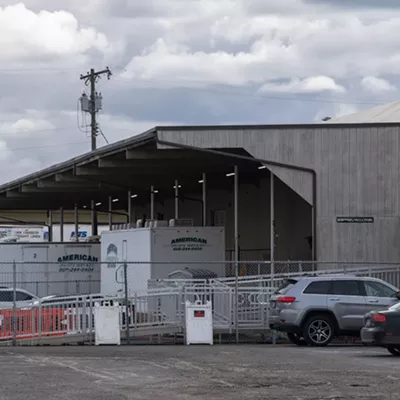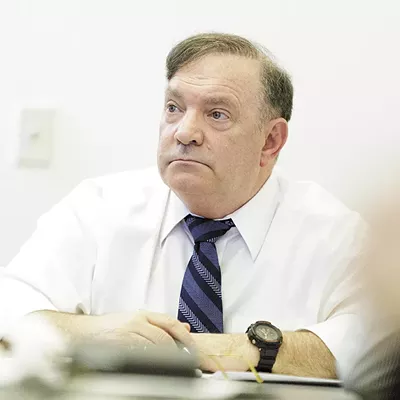Clean up at Kaiser -- SPOKANE -- The Washington State Department of Ecology is asking for public comments on its proposed plan for further cleanup at Kaiser Aluminum's plant in Mead.
The site at the now-closed aluminum smelter is contaminated by cyanide and fluoride -- both common byproducts of aluminum manufacturing.
According to Ecology, the contaminants have been leaking from piles of used potlining (the corroded material that is removed from the pots that hold molten aluminum) and has polluted groundwater in a plume stretching to the Little Spokane River.
The piles of potlining have already been capped (to prevent runoff during rain), and previously leaking water drainage pipes surrounding the piles have been repaired as well. But a system to pump and treat contaminated groundwater has yet to be put in place. That system will be presented at a hearing next Thursday, and once the draft is approved, Kaiser will be required to complete the cleanup.
The public hearing on the cleanup plan is Thursday, May 9, at 6:30 pm at SCC's Lair Auditorium, 1810 N. Greene Street. Call: 456-4464.
Don't Take the Car -- SPOKANE -- Should police be able to seize cars, houses, cash and other goodies from people dealing illegal drugs? What if those people are never convicted?
Liberty Initiatives, a small Washington group that has long fought this practice, sometimes called asset forfeiture, is gathering signatures for an initiative to stop these police seizures. Under Initiative 784, authorities would have to convict a person of a drug crime before seizing their property. And the proceeds from auctioning the property would no longer go to the police agency involved, but to a school fund.
Eliminating this practice with I-784 is a way to rethink the drug war, says Richard Shepard, an Olympia lawyer and president of Liberty Initiatives.
"In the arena of drug reform, it's a major front," he says.
Local authorities say the initiative is a bad idea.
Police argue that seizing drug-related assets helps take the profit out of drug-dealing. It also funds further police anti-drug efforts. Last year, the Spokane Police Department, the county sheriff and the Spokane Regional Drug Task Force together seized property worth $420,000 from area residents involved in the drug trade, according to the state Treasurer's Office.
"Why would anyone want to stop police from taking the profits of drug dealers?" asks SPD spokesman Dick Cottam.
A controversial part of the drug seizures is, it's a civil procedure, so police have to meet a much lower level of proof than in criminal cases. That leads to anecdotal horror stories like parents losing their car because cops found their drug-addled teenager driving it.
In Spokane, police wait for criminal cases to get resolved before seizing assets, according to Deputy Police Chief Al Odenthal.
"It wouldn't cripple our efforts. It would hamper our efforts over time," says Odenthal. Seizing money and goods "certainly pays for some of our training, equipment and surveillance."
To get I-784 on the November ballot, the supporters must gather 197,734 signatures by the July 5 deadline.
Musical Benches -- SPOKANE -- Last year, at just about this time, Spokane City Councilwoman Roberta Greene and then-Councilwoman Phyllis Holmes decided to soften the city's stance on bus bench advertising.
The two councilwomen were participating in a workshop to address the matter through the Comprehensive Plan, then in the last stages of development. The draft plan held that off-premise advertising should end.
Holmes and Greene assented to that move. (The plan reads: "Bus bench advertising adds visual clutter to streetscapes and all environments and is particularly intrusive in residential settings.") Still, they managed to water down the draft by adding that "The city, STA and neighborhood councils should explore alternative ways to provide this [advertising] service."
In other words, bus bench ads had to go -- but bus officials and public volunteers should spend their time finding a replacement.
The compromise included a timeline: "This issue shall be addressed within one year of adoption of the comprehensive plan." Well, the City had better hurry. The comprehensive plan, containing the Greene and Holmes proviso, was approved in late May 2001. As of last week, the leadership in City Hall had not yet managed even to form the prescribed committee.



















